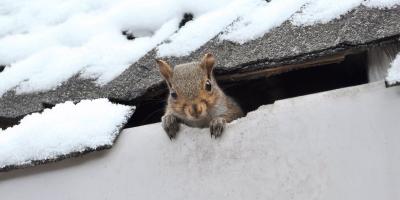Using Nature’s Resources to Organically Ward off Garden Pests

If you like to get your hands dirty, organic gardening may be just your thing. Not only does the lack of chemical nutrients mean that your greenery may be much safer to play in (and eventually consume) than a traditional garden, you won’t have to worry about potentially harmful residue coming in contact with your skin.
Organic Gardening 101
Getting started with organic gardening is only as hard as you make it. All it really takes is finding organic alternatives to traditional fertilizers and pest control products, which, thanks to the explosion in organic gardening in recent years, should be readily available at your local hardware store.
Whether your preference is fruits, vegetables or ornamentals, once you’ve decided what you’d like to cultivate, the next step is figuring out what to feed those hungry plants.
Organic fertilizers run the gamut from the nontoxic and benign, such as compost and grass clippings, to slightly more caustic but still eminently safe options, such as manure. The important component here is organic nitrogen, which is essential for all plant life in order to spur growth.
Composting is a fantastic option, because it’s a form of recycling that you can do yourself. Just collect organic kitchen waste (food scraps, egg shells, paper towels, etc.) and transfer it into a simple composting bin or pile, then let nature do its work. Within weeks you’ll have a nutritious, nitrogen-rich plant food that wasn’t conceived in a lab.
Killing Them Softly… With Natural Predators
One of the great innovations in organic gardening in recent years has been the advent of using predatory species to naturally fend off invasive pests. Instead of harsh chemical insecticides, unleashing species, such as beneficial nematodes, green lacewings, praying mantises and even ladybugs, which are harmless to your vegetation, can control populations of aphids, mealybugs, thrips, spider mites, leafhoppers, whiteflies, moths and more from ravaging the “fruits” of your labor.
Muscidifurax raptorellus (a type of wasp) and Hypoaspis miles (a type of mite) are two other beneficial species you might not find at the corner store, but they are available in specialty gardening stores and online.
However, it’s not just animal species that can help keep your garden safe; other plant species can also work against invaders. Sunflowers, marigolds, lavender and chrysanthemums all have pest-deterring properties.
Other non-chemical techniques go back as far as when humans first began practicing agriculture. Screens and nets can keep flying pests from munching on your plants. Decoys (yep—scarecrows and the like) will help shoo away any birds trying to dine on your vines. And simply digging in and using your hands to remove unwanted snails, slugs and other slimy trespassers works too.
If cared for properly, it doesn’t take much coaxing to get your organic vegetable garden to yield a plentiful bounty come harvest time, or for your fabulous ornamentals to blossom and bloom just as fully as their chemically-treated brethren.
Whichever type of garden you choose, the pleasure you’ll get knowing you’re doing the Earth and yourself a favor will make this gardening season a success!



